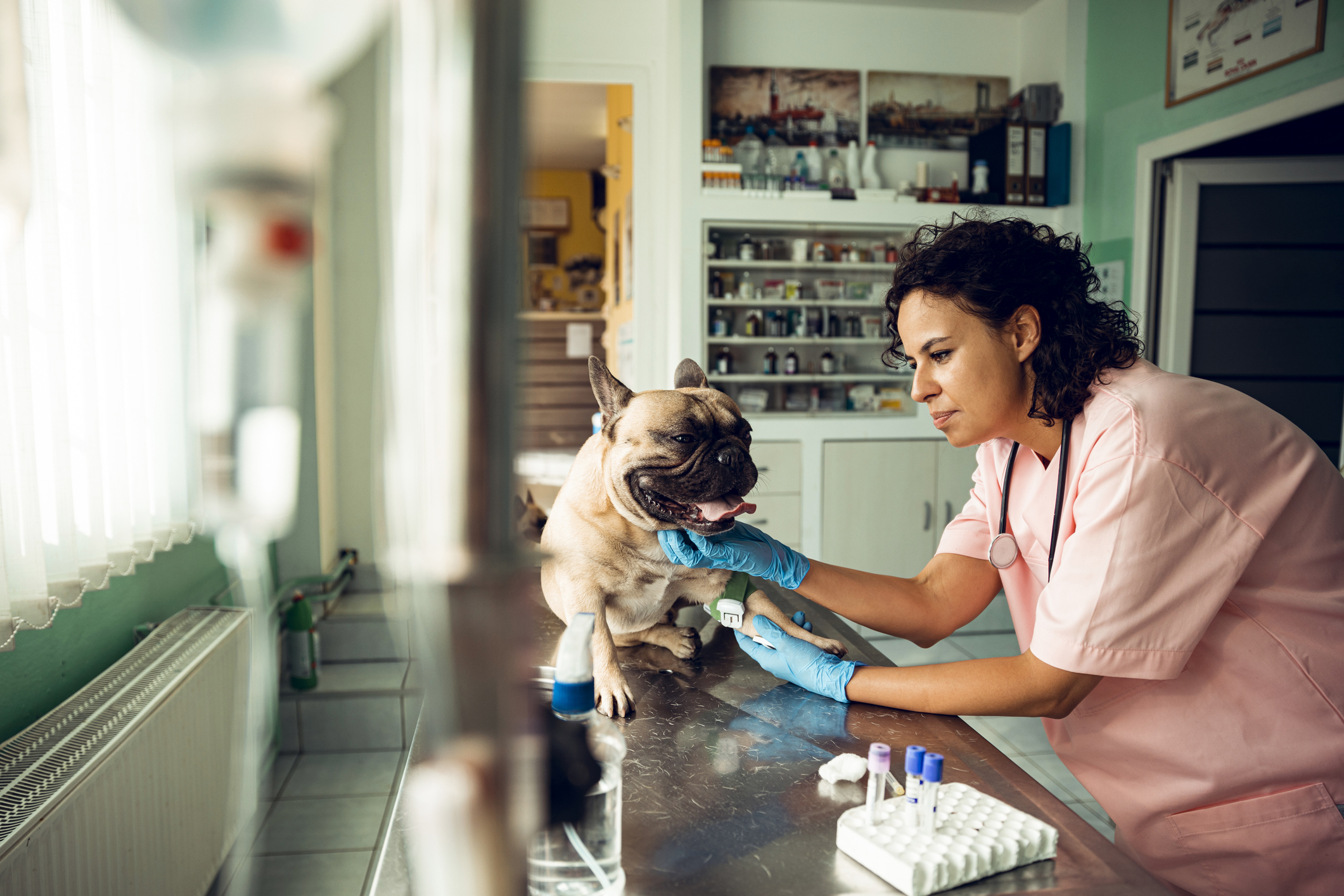
Aug 15, 2024 | By, For Pet's Sake
Veterinarian etiquette: 10 tips for a smooth vet visit
Check your calendar, because it might be time for another veterinarian visit. Even if your pet is perfectly healthy, it’s important to schedule a yearly checkup to keep tails wagging and kitties purring. Check-ups and treatments when ill or injured at your local veterinarian are essential, and making sure you and your pet are prepared can help make your visit less stressful for both you and the vet. Here are 10 veterinarian etiquette tips for a peaceful and professional visit.
- Come with a clean pet: Make sure your pet is properly bathed and clean before your visit. Dirt and build-up can get in the way of physical exams.
- Keep your pet secured: Leash or cage your pet when inside the office, as animals often want to explore (or escape) when in unfamiliar settings. Securing your pet is important for everyone’s safety and helps prevent attacks and spreading illnesses.
- Clean up accidents: Carry cleaning products to handle any accidents your pet may have and help keep the space clean for everyone.
- Stick to your scheduled appointment: Tardiness and last-minute cancellations can affect all pet patients. Be considerate of your vet and others by showing up on time and prepared.
- Put the cell phone away: Be present during your pet’s vet visit. Avoid using your cell phone, especially in the patient room. Clear communication is key to a successful visit and should be free of unnecessary distractions.
- Come prepared with questions: Responsible pet owners are the best pet owners. You know your pet better than anyone else, so have questions ready about your pet’s health, hygiene, or any other concerns you may have.
- Make one pet appointment at a time: Schedule separate appointments for your pets to give them the proper 1-on-1 attention and care needed to stay healthy.
- Have medical history up to date: Keep records of vaccines, shots, treatments, and check-ups handy. An updated medical history can save time and help identify health issues more quickly.
- Keep contact information up to date: Be sure your address, phone numbers, and emergency contacts are current, especially when registering a microchip. This information is vital in emergencies or if your pet goes missing.
- Have pet insurance: Medical bills for pets can be expensive, and it’s disheartening for vets to see patients forgo treatment due to cost. Proper pet insurance can save your pet’s life and provide more vet care options.
Remember, annual vet checkups are crucial for keeping your pet healthy, and it is equally as important to build a good relationship with your local veterinarian clinic! Monitor your pet’s health and behavior daily and book an appointment with your local vet if you notice any unusual symptoms or behaviors.
Have a question about pet health? Want to become the best possible pet parent? Find helpful tips, reminders, and insight to giving your furry friend the best possible care with For Pet’s Sake! Learn more at drdevonsmith.com.

